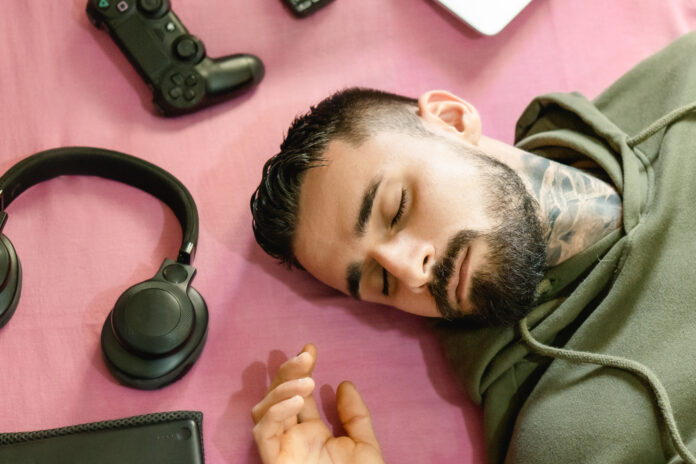It’s hard to stay alert and focused if you’re not getting the proper amount of sleep, which can be caused by many things. If you aren’t sleeping right due to sleep apnea, there are some things you can do about it. The article below has tips and ideas to help you manage this affliction.
You must be careful not to use sedating medications if you have been diagnosed with sleep apnea. Anything that sedates you will slow down your breathing, especially when you go to sleep. When you are sedated by medication, your throat muscles will relax and collapse more quickly as you sleep.
If you have sleep apnea, be sure to ask your doctor every five years if you should have a follow-up sleep study. As your weight and health change, your CPAP pressure may need to be adjusted. The most accurate way to reassess your needs is to have another sleep study with CPAP so the appropriate pressure can be determined.
Drink less alcohol and smoke less if you suffer from sleep apnea. Alcoholic beverages cause the upper airway to become overly relaxed, and smoking causes swelling in your airway. So, cutting back or completely giving up both can improve your symptoms or even cure your sleep apnea problem completely.
Sleep Apnea patients using a CPAP machine may find that a humidifier is their best friend. The continuous passage of air from the machine can dry out sensitive nasal membranes, creating discomfort. A room humidifier, placed near the machine, often provides the humidification needed for comfortable sleep. If that isn’t sufficient, machines with integrated humidification chambers are available and allow the patient to customize the amount of moisture they receive.
Sleep apnea is not to be taken lightly. If you notice some of the warning signs, you need to talk to your doctor as soon as possible. Once you have been diagnosed, your next step will be a sleep specialist, who may administer a sleeping test using a small monitor to determine the extent of your condition.
Everyone who snores does not have sleep apnea. Conversely, everyone who has sleep apnea does not necessarily snore either. How do you know the difference? The biggest signs are how you feel during the course of a normal day. Snoring does not interfere with the sleep quality the same way that sleep apnea does. With snoring you are less likely to suffer from fatigue during the day.
Keep your bedroom in prime shape for sleeping. Insomnia and sleep apnea are often connected. This makes keeping an environment in which you sleep at the right temperature, lightness level and sound level important for helping you get a good night of rest. The right environment also means leaving your stresses outside the bedroom to ensure you are relaxed enough to fall asleep.
If you are concerned your snoring may be sleep apnea, try keeping a sleep diary. You would keep a record of the hours you sleep, how many times you wake at night, and whether you feel refreshed the next day. Also, if you have a bedmate, ask them if your snoring is loud and frequent and if you exhibit any gasping or choking sounds.
On easy way to help limit your sleep apnea is to stick to regular sleeping hours. When you stick to a sleep schedule that is steady and consistent, you will be more relaxed and sleep much better. Apnea episode frequency will be greatly reduced if you can get plenty of sleep every night.
Sleep apnea events can be decreased by keeping regular sleep hours. Going to bed and getting up at approximately the same time every day will provide better and more relaxed sleep. This simple lifestyle change can be a big help when sleep apnea is in the mild to moderate range.
If you are searching for ways to prevent sleep apnea, try sleeping on your side as back sleeping lets gravity take over. This causes your tongue and other soft tissues in your throat to drop, which could obstruct your airway. Try putting a tennis ball in the neck of your pajamas to discourage rolling onto your back. You could even stuff a pillow with tennis balls and wedge that behind your back.
If you have a CPAP machine, you should always have it with you. Using a different machine might not work as well since the settings or the mask might be different. If you have to go to the hospital, have someone bring your machine so you can keep on using it.
If you have sleep apnea and use a CPAP when you sleep at night, do not neglect your filters. It can be easy to forget about this, but you need to make sure your machine operates at maximum efficiency. Wash your reusable filter at least every week, and replace your white pollen filter at least once a month.
While it is common sense to avoid caffeine before sleeping, this is especially true for people who have problems with snoring or apnea. This is a simple thing to cut out, just remember that this includes soft drinks, coffee and even some types of coffee flavored foods. This will also help you sleep faster.
If you are drowsy, listen to your body. If you are not getting enough sleep at night because of sleep apnea, you are more likely to feel drowsy during the day. This indicates that your treatments are not effective. So, when you are feeling drowsy on a regular basis, consider visiting your doctor to re-discuss your treatment options and your current apnea treatment plan.
Now that you’ve finished reading this article, you can see that there are ways to control this problem. Don’t go through live deprived of the sleep you need. Practice what you’ve just learned, and be on your way to life that includes the rest you deserve. Soon, you will feel much better.



